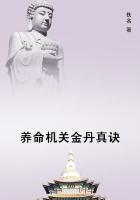Amongst the Italian economists who were most under the influence of the modern spirit,and in closest harmony with thegeneral movement which was impelling the Western nations towards a new social order,Cesare Beccaria (1738-1794)holdsa foremost place.He is best known by his celebrated treatise Dei delitti e delle pene ,by which Voltaire said he had madehimself a benefactor of all Europe,and which,we are told,has been translated into twenty-two languages.The EmpressCatherine having invited him to fix his residence at St.Petersburg the Austrian Government of Lombardy,in order to keephim at home,established expressly for him a chair of political economy;and in his Elementi di economia pubblica (1769-1771;not published,however,till 1804)are embodied his teachings as professor.The work is unfinished:he haddivided the whole subject under the heads of agriculture,manufactures,commerce,taxation,government;but he has treatedadequately only the first two heads,and the last two not at all,having been called to take part in the councils of the state.Hewas in some degree under the influence of physiocratic ideas,and holds that agriculture is the only strictly productive formof industry,whilst manufacturers and artisans are a sterile class.He was strongly opposed to monopolies and privileges,andto corporations in arts and trades;in general he warmly advocated internal industrial *******,though in regard to foreigncommerce a protectionist.In the special case of the corn trade he was not,any more than Galiani,a partisan of absoluteliberty.His exposition of economic principles is concise and sententious,and he often states correctly the most importantconsiderations relating to his subject without adding the developments which would be desirable to assist comprehensionand strengthen conviction.Thus on fixed capital (capitali fondatori ),as distinct from circulating (annui ),in its application toagriculture,he presents in a condensed form essentially the same explanations as Turgot about the same time gave;and onthe division of labour and the circumstances which cause different rates of wages in different employments,he in substancecomes near to Smith,but without the fulness of illustration which is so attractive a feature of the Wealth of Nations.PietroVerri (1728-1797),an intimate and lifelong friend of Beccaria,was for twenty-five years one of the principal directors of theadministration of Lombardy,in which capacity he originated many economic and other reforms.In his Riflessioni sulle leggivincolanti,principalmente nel commercio de'grani (written in 1769,printed in 1796),he considers the question of theregulation of the corn trade both historically and in the light of theoretic principles,and arrives at the conclusion that libertyis the best remedy against famine and against excessive fluctuations of price.He is generally opposed to Governmentalinterference with internal commerce,as well as to trade corporations,and the attempts to limit prices or fix the rate ofinterest,but is in favour of the protection of national industry by a judiciously framed tariff.These views are explained in his Meditazioni sull'economia politica (1771),an elementary treatise on the science,which was received with favour,andtranslated into several foreign languages.A primary principle with him is what he calls the augmentation of reproduction --that is,in Smith's language,of "the annual produce of the land and labour"of a nation;and by its tendency to promote or torestrict this augmentation,he tests every enactment and institution.Accordingly,unlike Beccaria,he prefers the petite the grande culture ,as giving a larger total produce.In dealing with taxation,he rejects the physiocratic proposal of a single imp?t territorial .(15)Giovanni R.Carli (1720-1796),also an official promoter of the reforms in the government of AustrianLombardy,besides learned and sound treatises on money,was author of Ragionamenti sopra i bilanci economici delle nazioni,in which he shows the falsity of the notion that a state gains or loses in foreign commerce according to the so-calledbalance of trade.In his letter to Pompeo Neri Sul libero commercio de'grani (1771),he takes up a position similar to thatof Galiani,regarding the question of the ******* of the corn trade as not so much a scientific as an administrative one,to bedealt with differently under different local or other conditions.Rejecting the physiocratic doctrine of the exclusiveproductiveness of agriculture,he illustrates in an interesting way the necessity of various economic classes in a society,andthe reflex agency of manufactures in stimulating the cultivation of the soil.Giambattista Vasco (1733-1796)wrotediscourses on several questions proposed by academies and sovereigns.In these he condemns trade corporations and theattempts by Governments to fix the price of bread and to limit the interest on loans.In advocating the system of a peasantproprietary,he suggests that the law should determine the minimum and maximum portions ot land which a citizen should bepermitted to possess.He also,with a view to prevent the undue accumulation of property,proposes the abolition of the rightof bequest,and the equal division of the inheritance amongst the children of the deceased,Gaetano Filangieri (1762-1788),one of the Italian writers of the last century whose names are most widely known throughout Europe,devoted to economicquestions the second book of his Scienza della legislazion (5vols.,1780-1786).Filled with reforming ardour and apassionate patriotism,he employed his vehement eloquence in denouncing all the abuses of his time.Apparently without anyknowledge of Adam Smith,he insists on unlimited ******* of trade,calls for the abolition of the medieval institutions whichimpeded production and national well-being,and condemns the colonial system then followed by England,Spain,andHolland.He prophesies,as Raynal,Turgot,and Genovesi had done before him,that all America would one day beindependent,a prediction which probably helped to elicit Benjamin Franklin's tribute of admiration for his work.Rather apropagator than a discoverer,he sometimes adopted from others erroneous opinions,as,for example,when he approves the imp?t unique of the physiocrats.On the whole,however,he represents the most advanced political and social tendencies ofhis age;whilst strongly contrasted with Beccaria in temperament and style,he was a worthy labourer in the same cause ofnational and universal progress.Ludovico Ricci (1742-1799)was author of an able report Sulla riforma degli istituti piidella cittàdi Modena (1787).He treated the subject of poor relief and charitable institutions in so general a way that thework possesses a universal and permanent interest.He dwells on the evils of indiscriminate relief as tending to increase themisery it seeks to remove,and as lowering the moral character of a population.He exposes especially the abuses connectedwith lying-in and foundling hospitals.There is much in him which is akin to the views of Malthus;like him he is opposed toany state provision for the destitute.who ought,he thinks,to be left to voluntary private beneficence.Ferdinando Paoletti(1717-1801)was an excellent and public-spirited priest,who did much for the diffusion of intelligence amongst theagricultural population of Tuscany,and for the lightening of the taxes which pressed upon them he corresponded withMirabeau ("Friend of Men"),and appears to have accepted the physiocratic doctrines,at least in their general substance.hewas author of Pensieri sopra l'agricoltura (1769),and of I verri mezzi di render felici le società(1772);in the latter headvocates the ******* of the corn trade.The tract Il Colbertismo (1791)by Count Francesco Mengotti is a vigorous protestagainst the extreme policy of prohibition and protection,which may still be read with interest.Mengotti also wrote (1791)atreatise Del commercio de'Romani ,directed mainly against the exaggerations of Huet in his Histoire du commerce et de lanavigation des anciens (1716),and useful as marking the broad difference between the ancient and modern civilizations.
同类推荐
热门推荐
命中注定:霸道总裁的蜜恋甜妻
六月的天总是带着些燥热,午夜的C市上头弥漫着妩媚的味道,夜空的月被群星围绕着,分外璀璨。C市夜色酒吧门口的彩灯闪烁着,和往日一样,来客多不甚数,而门口一辆辆豪华轿车都是夜色酒吧档次的体现,各少豪大户全都是为夜色的大明星而来——上官雨。。。















